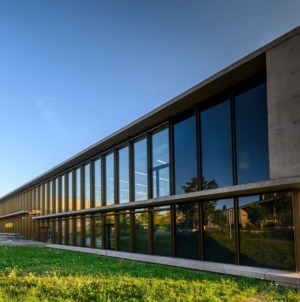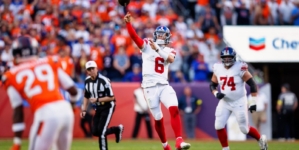-
Leading with Purpose: A Recipe for Excellence in Specialized Health Care - 5 mins ago
-
Curtis Sliwa Has the Spotlight. He’s Not About to Give It Up. - 24 mins ago
-
Firing artillery over Interstate 5 is ‘really rare’ for Camp Pendleton, expert says - 32 mins ago
-
Stephen A Smith Slams Giants Over Major Issue - 41 mins ago
-
Warner Bros. Discovery Says It Is Considering a Sale - about 1 hour ago
-
Why some parents don’t want to send sick children to school, despite district pleas - about 1 hour ago
-
WWE Veteran Admits Being Uncomfortable With Vince McMahon Idea - about 1 hour ago
-
What Sanae Takaichi has said about Donald Trump %%page%% %%sep%% %%sitename%% - 2 hours ago
-
Latest Trump-Zelensky Meeting Yields No Progress Toward a Cease-fire in Ukraine - 2 hours ago
-
More rain could be on the way this week to Southern California - 2 hours ago
AI Could Ruin the Experience of Recreational Boating
Artificial intelligence (AI) is infiltrating nearly every aspect of the transportation industry, from new cars on the road today to the trains of tomorrow. Boat captains are utilizing the technology to help in some ways. But, AI taking the helm is a non-starter for many, including Malibu Boats Inc. CEO Steve Menneto.
“I love that there’s a lot of conversation about AI and autonomous technologies. I think that anyone who has spent time on water understands that water is not predictable, and even less so than city streets,” Menneto told Newsweek. “Yachts are becoming advanced and boats are becoming more advanced, but they’re still very analog to a certain extent, because you have to have someone behind the wheel, reading what’s going on ahead of you.”
Unlike city streets, which are largely static surfaces that have objects moving on them, waterways move and have objects moving on and in them. They react to outside forces, including other ships, weather and animals. And, tides change the areas where water flows throughout the day.
Instead of using AI technology to captain ships, Menneto pointed out that advances in technology will help captains in other ways in the coming years. He recently took a trip from Florida to the Bahamas. “I know just from taking that trip over the Atlantic Ocean… We were expecting one to two-foot swells and we got four to six-foot swells, which made your boat experience way differently.”

It’s not just oceans that are difficult to predict. America’s Great Lakes are notoriously known for quickly brewing storms, which impact wave size. In the future, technology could help sailors have more accurate wave forecasts while in the water.
Advanced technology could also better pinpoint the location of storms. But, it’s not a substitute for honed human observation, which is why it’s such an enjoyable pursuit, Menneto believes. “I don’t think you can remove the human experience, because that’s part of the enjoyment, even when you’re in a little bit of more aggressive situations versus more tame situations, you still want to have that internal achievement,” he said.
Menetto continued saying, “It’s less of a story if I were to tell you that I went 240 miles across the Atlantic Ocean [captaining] an autonomous boat. I had a computer drive the boat.. We, as people, want to feel accomplishment. We want to be involved in the situation. Some folks want to take the opportunity to live at more extreme levels.”
The CEO suspects that when AI helps him drive a boat, it would “not feel as authentic and realistic” as a human-captained ship. “But I do like that technology to help me be a smarter captain of my vehicles,” he said.
One of the key issues with cloud-based technologies, like AI, coming to boats is the lack of internet connectivity on the world’s waterways. Still, apps that connect captains to their ships and services are useful tools. “Do I know hull is ready, batteries charged? I could tell that all from an app. When you think about piloting a boat and you’re going to a place that you’ve never been, your apps can [help you] secure dock space… There are a lot of ways apps enrich the experience of boating, and I think that that’s going to continue,” the CEO said.
But, when today’s boats are in the middle of the ocean, captains must use marine very high frequency (VHF) communication that utilizes two-way radio transceivers for bidirectional voice communication. The shipping industry was the first commercial application of radio technology, around 1900, and today’s VHF use stems from that.
“When you go out to the middle of the ocean, you go back to some old technology where you have VHF communication between boats,” he explained, sharing that Starlink, a satellite network that provides internet connectivity in remote areas, allows for a higher level of connectivity than before but that there still is opportunity for improvement.
He offered a prediction, saying, “We have radar, sonar, those types of things currently on boats that help us navigate. But I think as we move into the future, connectivity will only get better for us to manage our boats when we’re not underway, and also to help us when we are underway, be a smarter, better captain.”
Source link



















